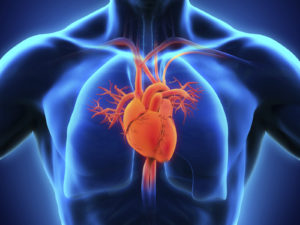What is Athletic Heart Syndrome?
Heart health and athletic endurance go hand-in-hand.
“Exercise strengthens the heart muscle, enabling it to pump a greater volume of blood with each heartbeat,” said Dr. Deepak Bhatt, editor of the Harvard Heart Letter, in a recent Q&A.
 A recent story from the HealthDay News detailed what athletic heart syndrome is and if it is dangerous.
A recent story from the HealthDay News detailed what athletic heart syndrome is and if it is dangerous.
Below is an excerpt from the HealthDay News article.
When a person does vigorous-intensity exercise for more than an hour a day on the majority of days, changes in the heart may occur, according to the Cleveland Clinic. One of the main changes is a thickening of the left ventricle wall. Another marker of AHS is that the space in your left ventricle gets larger.
A study of Olympic athletes published in Circulation: Cardiovascular Imaging revealed that AHS shows up differently in the hearts of women and men, although electrical and muscular size changes occurred in the hearts of both.
Compared to men, women in the study had relatively larger increases in the size of their right and left ventricle cavities. The absolute dimensions of these cavities in women were smaller than those of men.
An electrical measurement called T-wave inversion (which can indicate the presence of heart trauma or disease) was also more common in women than in men. Finally, the inflow/outflow ratio between the ventricles was higher in women than in men. That ratio for the right ventricle was, however, lower in women than in men.
Lead author Dr. Flavio D’Ascenzi, an assistant professor of sports cardiology at the University of Siena in Italy, said in a statement that these results indicate “a sex-based approach for interpreting the complex features of ‘athlete’s heart’ in women is needed.”
Is athletic heart syndrome dangerous?
A study of more than 21,000 men published in JAMA Cardiology revealed that high-volume, high-intensity exercise did not raise the risk of heart disease in middle-aged male athletes.
“For the past decade or so, there’s been increasing concern that high-volume, high-intensity exercise could injure the heart,” lead researcher Dr. Benjamin Levine said in a news release on the study. “We found that high volumes of exercise are safe.” He’s a sports cardiologist and professor of internal medicine at UT Southwestern Medical Center in Dallas.
While AHS is not dangerous to athletes’ health, it does share some features in common with certain heart conditions that may be harmful, according to the Cleveland Clinic. In particular, a set of conditions that affect the heart muscles, collectively known as cardiomyopathy, could be a reason for the heart’s size and electrical changes.
To read the full story from HealthDay News, click here.







